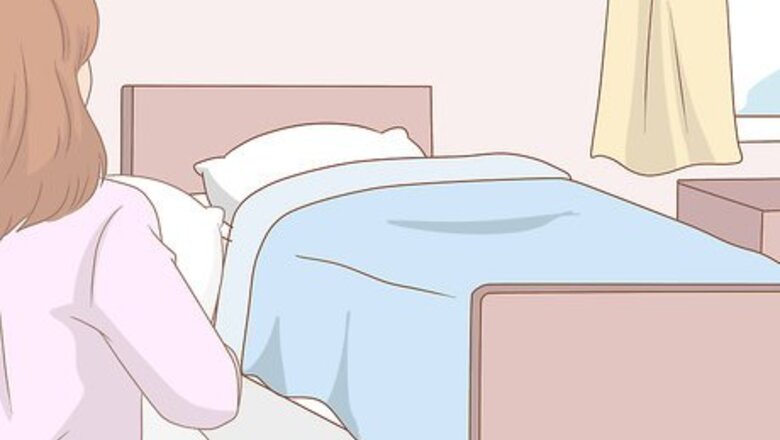
views
Making Your Environment Comfortable
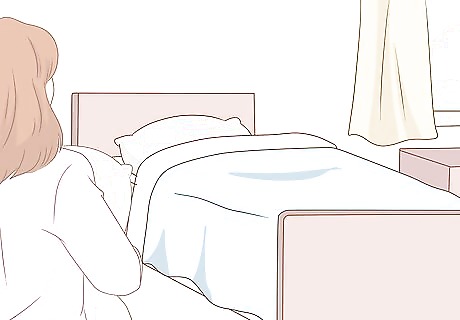
Use your bed for sleep. If you are recovering from a long illness, especially a physical ailment, it is best to sleep in your bed instead of using the couch or recliner. By using your bed for sleep, you will elicit a necessary reaction in your body, activating the sleep-promoting parts of your brain. Try to stay out of bed during the day if you are having trouble falling asleep. Reserve the bed for sleeping not for watching TV, eating or reading. Use an easy chair, recliner or a couch for stretching out on during the day. You will begin to subconsciously associate the bed with sleep rather than with other activities.
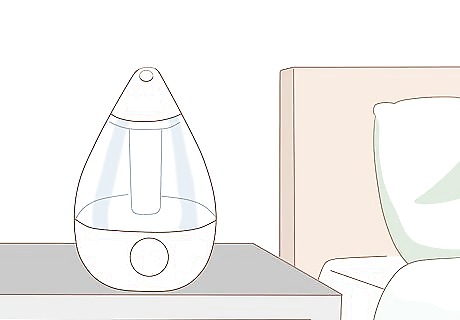
Run a humidifier. Humidifiers increase the amount of moisture in the air. By using one it may help to alleviate your cold or illness symptoms.

Set a comfortable temperature. When trying to fall asleep, your body tries to reach a perfect temperature that is not too hot or cold. Your body has an easier time achieving the right temperature when you're in a cooler room.
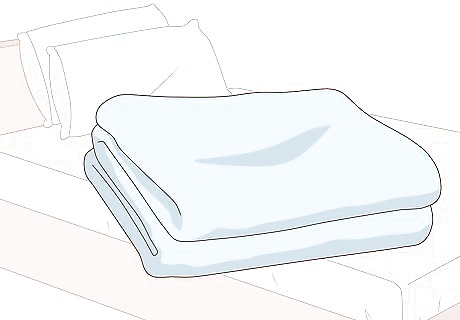
Use appropriate covers and blankets. Be sure to use comfortable blankets and use an adequate amount so that you are cozy.
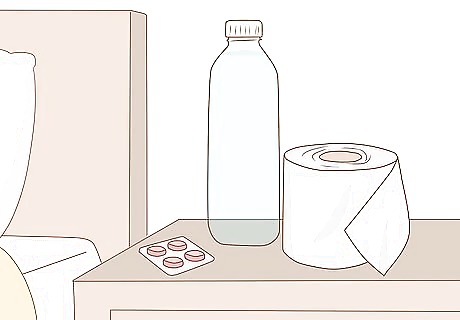
Keep necessities nearby (tissue, water, throat lozenges, etc.) Prevent the need to get out of bed for essential items by keeping them close by. This way, you can easily access them without completely waking up and disturbing your sleep cycle.
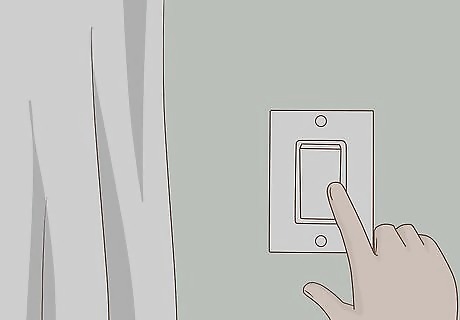
Minimize light in the room. Draw your curtains and turn off the lights to greatly increase your ability to fall asleep as well as your quality of sleep. Consider using a sleep mask if there's still light seeping into your room. Light exposures affects the hormones that induce sleep.
Sleeping Soundly

Reduce screen time. Prepare your body for sleep by avoiding the use of phones, television or other devices. The light emitted from these devices can cause you to stay awake longer and don't allow the body to prime itself for bed.

Avoid caffeine before bed. Caffeine is a substance that stimulates the central nervous system so it is something you want to stay away from right before bed. It will energize you and cause you to be jittery, making it harder to fall asleep. Stay away from soda, coffee, alcohol, chocolate, nicotine, etc. Caffeine can cause dehydration, worsening your illness.
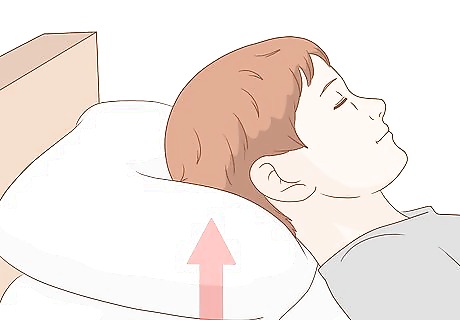
Elevate your head. Your quality of sleep can be directly associated with your sleep posture. Use pillows to raise your head and create the optimal position for your air passage.
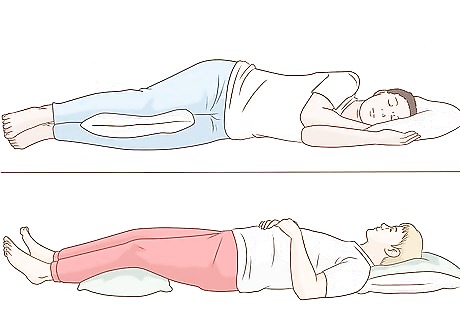
Maintain good sleep posture. Sleep positioning affects your ability to sleep well. Determine which sleep posture is best and increase your ability to sleep uninterrupted. Sleeping on your side is recommended for people who snore or suffer from sleep apnea. If you suffer from heartburn, it is best to sleep on your left side. If recovering from a physical illness associated with swelling, be sure to alleviate the swelling by elevating the swollen limb so that's is above your heart.
Changing Activities or Routines

Avoid behaviors or activities contributing to your illness. Don't automatically resume behaviors and activities from before falling ill. This especially true for physical recoveries that necessitate little to no movement. If able, skip work, school or other obligations to recuperate.
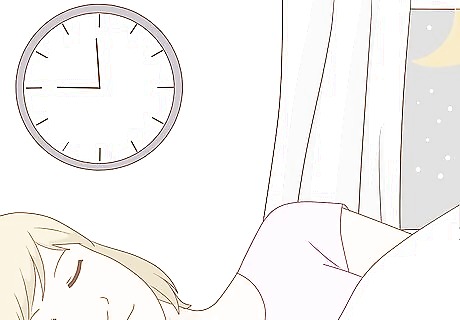
Go to bed early. Try to fall asleep early or go to bed at a reasonably time to ensure you are receiving sufficient sleep. By sticking to a healthier sleep cycle you are regulating your inner clock or circadian rhythm. Try to determine which type of problem you are having. Falling asleep and staying asleep are two different problems. There are those who once they manage to fall asleep, sleep quite well for several hours at a stretch, and there are those who fall asleep fairly easily but find they wake up after a couple of hours and are then unable to fall back asleep. Try to stay awake during the day. Remember that as someone with an illness, you probably are not using up a lot of energy and your body just might not need much sleep. Even though your brain is tired, your body might not be ready to go to bed. Sleeping during the day disrupts your sleep cycle and makes it harder for you to fall asleep at night as that daytime sleep gets subtracted from the total hours you'll sleep in a 24-hour cycle. More sleep during the day equals less sleep at night.

Limit loud noise or sounds. When trying to fall asleep, do so in a calm and soothing environment free of aggravating noises or sounds and create tranquility by playing soft music or nature sounds.
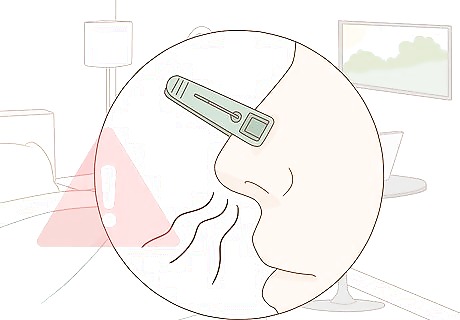
Limit exposure to pungent smells. Very strong smells can intensify your symptoms. This holds true for illnesses symptomatic of nausea, motion sickness, or dizziness.
Following the Doctor's Orders

Ask questions. During your initial doctor visit for your illness, ask any relevant questions to fully understand the diagnosis and treatment. Go to your appointment with a list of questions. Don't feel intimidated by your doctor and ask anything you think is necessary. Ask the doctor for clarification to answers you are not certain about.
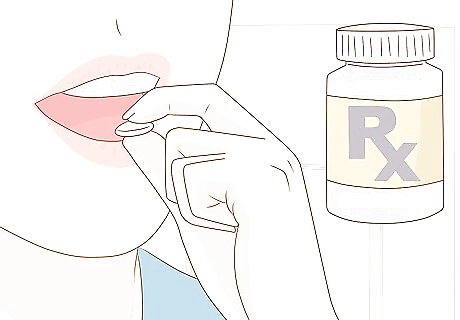
Take prescribed medication. Don't forget to take every dose of medication and make sure you finish the entire prescription. Failure to do this will cause the medication to not working properly or not at all and you can develop a resistance. Set an alarm on your phone to remind you that it's time for your medicine. Take your medication at the same time every day so your body always has working medicine in it. Doctors rarely prescribe sleeping medication for long periods of time. Continue exploring alternate ways of improving your sleep even while you're on your medication so that you can get good sleep after you go off it.
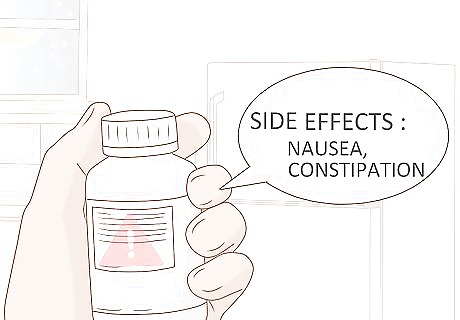
Familiarize yourself with the side effects. Read the side effects associated with your medicine before you begin taking it so you know exactly what to expect. If you believe there are too many side effects, contact your doctor to discuss your concerns.
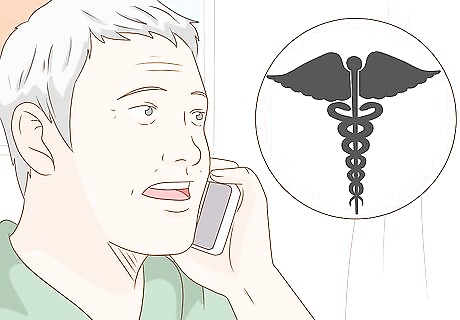
Contact your doctor. If you find that you are consistently unable to sleep, it's probably time to call your doctor. You physician can determine the underlying cause for your insomnia and prescribe you sleeping medications or change your current medication to something that won't affect your sleep. Mild sleeping medications exist that can help you to fall asleep and stay asleep for longer periods of time. Your doctor may alter the dosage of your current medication or prescribe you something to be taken at night so your day won't be affected when you experience drowsiness. Your illness may have worsened and additional medication could be necessary.




















Comments
0 comment